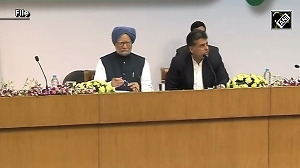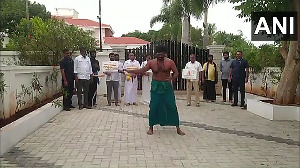Germany had set out to equal their Vancouver 2010 performance and finish in the top three in the medals table at the Sochi Olympics but with two days of competition left, team chief Michael Vesper admitted they had failed.
With only 16 medals from a predicted 27-30 and a high-profile doping case which led to former Olympic cross country champion Evi Sachenbacher-Stehle being thrown out of the Games, Vesper said this was not what they had set out to achieve.
"It is right that we were not successful in many cases but I don't think it is wrong to set ourselves these goals," Vesper told reporters on Saturday.
"They were not unrealistic because the team definitely had the potential to achieve the lower margin of 27 medals."
Germany had set itself a target of a maximum 30 medals and a possible top-three finish in the standings. They were lying fifth at midday on Saturday and the Games finish on Sunday.
"We did not reach our goal. We had a great first week and a half where we were leading the national table. Then it sadly broke down," Vesper said.
 "We had a lot of bad luck, we had a lot of close fourth places and therefore we did not reach our intended goal of the amount of medals won."
"We had a lot of bad luck, we had a lot of close fourth places and therefore we did not reach our intended goal of the amount of medals won."
The bad luck was compounded on Friday when Sachenbacher-Stehle, who has won five Olympic medals at previous Games, left Sochi in disgrace after testers caught her using a banned stimulant.
She initially expressed shock before saying she may have received what could have been a contaminated food supplement from one of her coaches.
Munich prosecutors opened an investigation late on Friday as a result of the positive test and searched three premises, including the Bavarian base of the German biathlon team in Ruhpolding, a spokesman for the prosecutor's office said.
He declined to comment on German media reports that the other two premises were Sachenbacher-Stehle's homes in Bavaria and Austria.
A food supplement was found at one of the premises and taken away for tests, he said, adding it was not the Ruhpolding base.
The athlete herself was not the target of the investigation, the focus was rather on who had provided the supplement, he added.
"It is absolutely necessary to investigate very closely the environment which led to this doping case and we will of course cooperate with the prosecutors who should and can take action here," Vesper said.
Image: Michael Vesper
Photograph: Sandra Montanez/Getty Images













 © 2024 Rediff.com -
© 2024 Rediff.com -